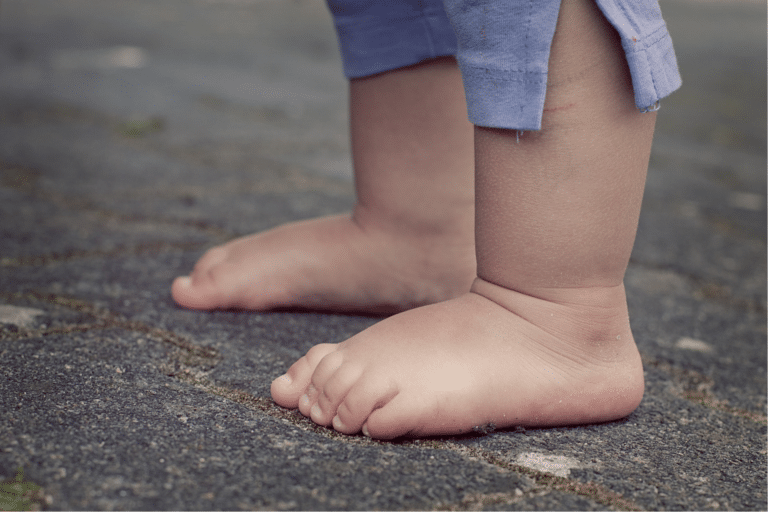New babies are often more alert at night than they are during the daytime. It is also very common for them to cluster feed during the night time hours.
Cluster feeding is when the baby needs to go back on the breast several times in a row, perhaps switching from one breast to the other and then back again. Often, people can wonder if this is because the baby is not getting enough milk, or the reason they are not sleeping through – and it can be tempting to offer a ‘top up’ to settle them.
However, these periods of cluster feeding are very important to help establish milk production: the more frequently baby feeds, the often they remove the milk, the more milk is made.
Milk-making hormones are also at their highest in the wee small hours, generally thought to be between 1am-5am, so it can have even more of a positive impact on milk production than cluster feeding at other parts of the day.
Our suggestion is that you try to find ways to help you cope, such as having a lie in, and napping in the early morning, because babies are often more settled in the mornings – or perhaps your partner or another family member or friend could be with baby after the first feed of the day and you could stay in bed. You could also try to grab a nap in the day, where possible; if you have older children, perhaps see if they could have a play date sometimes, or maybe grandparents could help out, if they are local.
Many baby books will tell you that a baby needs to be put into bed at 7pm. However, many babies are not ready for an early bedtime until they are several months old. And SIDS recommendations are also to keep you baby with you for all sleeps, day and night, until 6 months. So unless you want to go to bed at 7pm yourself it is generally easier to take baby to bed when you do to begin with. In these early months a simple bedtime routine can work well. It can be something as simple as a change of clothes, lights dimmed and feed to sleep. You could add a bath or a massage into this if you wish to but it’s not necessary.
Trying to settle a baby to sleep when they are so alert is futile. Sometimes going for an evening walk if the weather is fine can be a nice way to calm them. Or dimming the lights, turning off screens and having some gentle play with books or songs. Then you can offer a feed. Feeding to sleep is the biological norm and there is no harm in doing this at all.
If feeding to sleep is not working then rocking, shhh-ing, patting, putting baby into the sling, swaying, can all help to settle them. Having a later bedtime can also work well as babies tend to sleep a little better in the first part of their night, and so you can do the same.
Sleep as a developmental process
Sleep is a developmental process and all babies develop in different ways and at different times so there’s no set expectation for when your baby will sleep longer stretches at night. Babies respond intuitively to their surroundings, dating back to when they were cave babies. In those times, frequent waking was a safeguarding mechanism, keeping babies safe from predators. Unfortunately, babies haven’t yet learned that they are safe and loved in their sleeping space and frequent waking is normal and natural although very hard on parents.
Studies show that babies whose needs are met when they wake, grow to be independent and secure and will eventually sleep better as time goes on. You do not need to teach your baby to sleep, they will learn by themselves and sleep training, or leaving your baby to cry, can be detrimental to their brain development.
You can implement some good sleep associations by keeping to a short routine and developing it with time and restricting your baby’s access to blue lighting (some monitors have blue lighting so it may be worth thinking about this) as well as restricted screen time before your baby goes to sleep.
Try to remember, this will not last forever and responding to your babies needs will help you all grow and develop as a secure and well attached family. If you’re able to, try to sleep when your baby sleeps and consider how you can improve your own sleep habits to maximise the sleep you’re getting.
Bedsharing, when done safely, can be a good solution for some families. You can ask more questions on bedsharing in the Anya app if you’d like further information on this.











